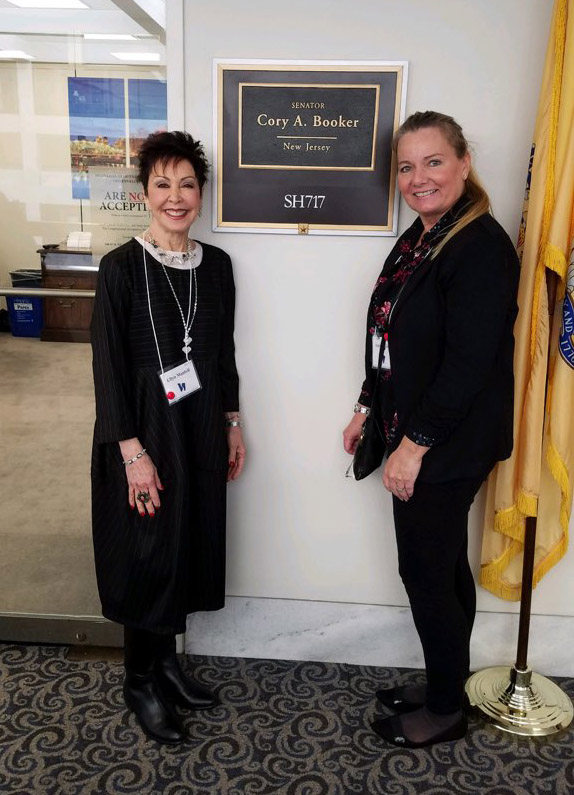By Jeanine Gleba UOAA Advocacy Manager
Each year the Digestive Disease National Coalition (DDNC) hosts a Spring Public Policy Forum. UOAA has been a member of this coalition for many years starting with our co-founder the late Linda Auckett. DDNC’s mission is to work cooperatively to improve access to and the quality of digestive disease health care to promote the best possible medical outcome and quality of life for current and future patients. Many in the ostomy community brought them to this surgery because of digestive medical conditions such as colon cancer and inflammatory bowel disease.
As the current Chairperson of the DDNC, I was especially proud of this year’s 34th Spring Public Policy Forum that was held March 3-4. The coalition’s consulting team at Health Medicine Council worked tirelessly to ensure its success. This year we were back to an all-in-person event with about 85 attendees representing 17 states.
On Sunday afternoon patient advocates and coalition members represented organizations such as the Crohn’s and Colitis Foundation, Celiac Disease Foundation, The Oley Foundation, and the National Pancreas Foundation and gastroenterologists from numerous state societies.
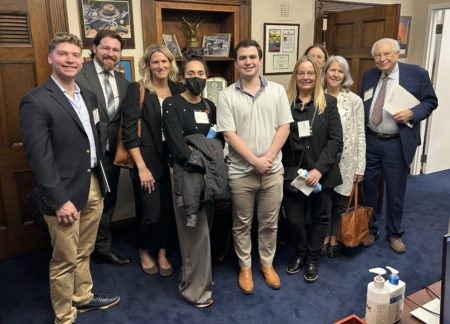
Team MA, NJ, NY advocating on Capitol Hill from left, Daniel Morgan (Mission Cure), Corey Greenbalt (Global Healthy Living Foundation), Emilie Schlitt (WOCN Society), Keyla Caba (UOAA), Sean McCabe (Legislative Director for Congressman Anthony D’Esposito), Jeanine Gleba (UOAA), Lisa Metzger (Oley Foundation), Dr. Maurice Cerulli (American Gastroenterological Association); in the back row Jane Holt (National Pancreas Foundation)
Featured presentations included the FDA, National Institutes of Health, All Copays Count Coalition, National Organization for Rare Diseases and the American Association for Cancer Research. A special highlight of the afternoon was hearing the patient perspective from UOAA’s patient advocate Keyla Caba and the things she advocates for. Later that evening attendees had a networking opportunity at a cocktail reception.
“I know my doctors have been very excited to know that patient voices and experiences in the digestive community are being shared with our legislators to impact & hopefully pass relevant Acts.” – Jennifer Locane (FL)
Monday morning we walked over to Capitol Hill and advocated for the DDNC public policy priorities in our respective state Congressional offices. The morning started with breakfast in the Rayburn Building where myself and DDNC President Dr. Carroll Koscheski presented several awards including the Lifetime Achievement Award to Dale Dirks. He has been working with the DDNC since its inception with founder Susan Rosenthal in the early 1980s.
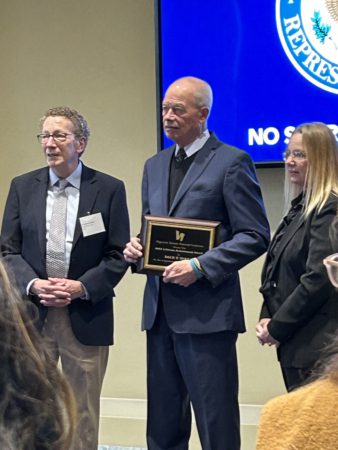
From left, Dr. Carroll Koscheski (President DDNC), Dale Dirks, Jeanine Gleba (Chairwoman DDNC
In the visits with staffers we continued to push for medical research funding and passage of the Safe Step Act (S. 652/H.R. 2630) and the HELP Copays Act (S. 1375/H.R. 830) along with the Medical Nutrition Therapy Act (S. 3297/H.R. 6407). They are widely co-sponsored in a bipartisan way and stand a good chance of passage this session in Congress and we shared the impact on the ostomy community. The ostomy advocates also had an opportunity to discuss the negative impact of non-medical switching of ostomy supplies, a cost-shifting tactic. We also advocated for Medicare coverage of fistula supplies.
This year there were quite a few ostomy advocates in attendance including Past President Susan Burns and UOAA Board of Director Lynn Wolfson, and Ashley Mann also representing FOW-USA. The WOCN Society also had a certified ostomy nurse, Emilie Schlitt (CWOCN), in attendance. I was lucky that she was on my team. I couldn’t help but notice that in all of the meetings I attended not a single staffer knew what an ostomy was, so it was a great teachable moment for us!
One of the new ostomy advocates, Jennifer Locane (FL), made the following comment to me about her experience joining us this year:
“I know my doctors have been very excited to know that patient voices and experiences in the digestive community are being shared with our legislators to impact & hopefully pass relevant Acts. It’s a blessing to do something good with all this pain, suffering, and experience & to make friends in the process!”
It’s because of sharing our collective patient stories annually that the DDNC continues to sustain progress on ensuring funding for research, public health, and treatment development, and on their coverage and access priorities. Together we do make a difference.

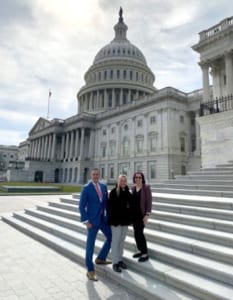
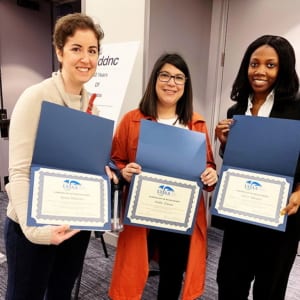 The greatest take-away message from honorees and guest panelists was the impact we make on the Hill. For example, it is truly because of patient advocates sharing their stories that we have seen increases in medical research funding.
The greatest take-away message from honorees and guest panelists was the impact we make on the Hill. For example, it is truly because of patient advocates sharing their stories that we have seen increases in medical research funding. 